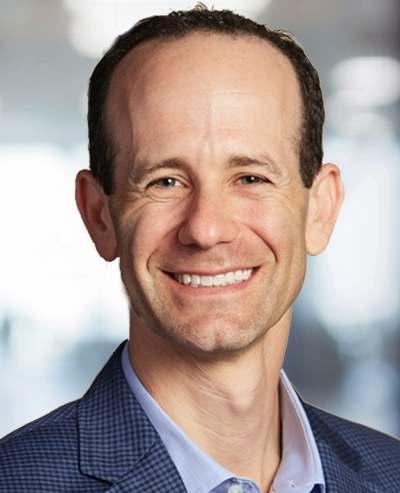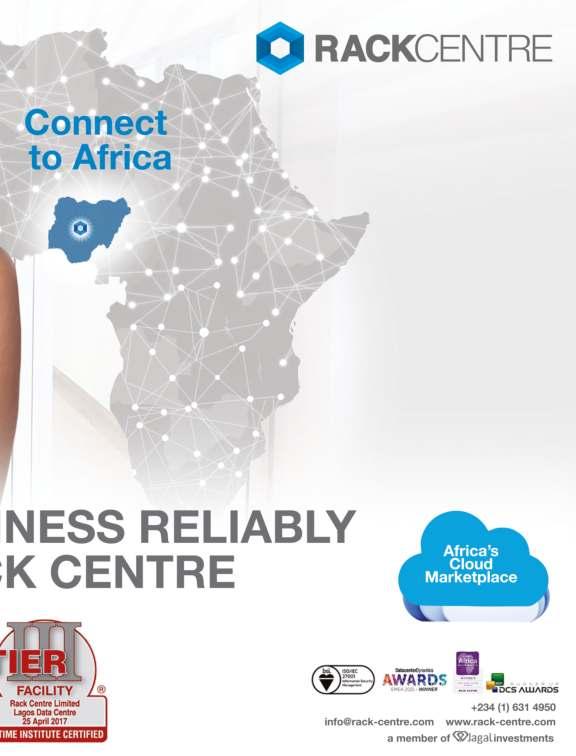








Over the past few years, the supply chain niche has
experienced drastic transformations adhering to the core aspects of how the global clientele of the sector demands prompt service. Everyone demands and explores a few ways to ensure a touch of reliability and smooth process flow from the companies that are catering to this niche.
With the advent of emerging technologies, the supply chain industry is embarking upon new horizons to respond promptly to the changes happening in the modern industry and consumer demands.
Moreover, real-time data analysis also provides the ongoing scenario of the current operations and helps the organizations to determine further developments in the supply chain, such as sourcing or transportation. However, comprehending the fact that emerging technologies are assisting in streamlining operations and the daily routine transactions of the niche. At the same time, analytic tools can help and enhance the core principles behind data-driven decision-making to access the demand substantially in the future.
The transformative leaders in the niche are constantly working on the core elements that are redefining the traditional methodologies of the supply chain industry. This saves a lot of time in terms of bringing a change in the organizational processes resulting in operational enhancements and betterments eventually.
When it comes to implementing the crucial factor to thrive in the

modern business arena, enabling innovations directly points towards making improvements in the ongoing processes of the supply chain niche. It develops a clean flow of a process, including how projects are being executed, along with how products, information, work distribution and funds are managed for the internal and external organizational processes.


The innovative leaders in the niche understand the fact that supply chain management is a rapidly changing industry. It is crucial to understand the understanding the widespread adoption of technology and global climate change, which will turn the tables in setting up a sustainable environment for a bright future of the Supply Chain Industry.
Comprehending the mindset and the crucial approach of such staunch leaders that are revolutionizing the niche, CIOLook's latest edition embraces the odyssey of ' The 10 Most Influential Women in Supply Chain – 2022 .' Flip through the pages and indulge yourself in the crusade of excellence.
Have a Delightful Read!
AbhishekJoshi
bh i s h e k J os h i










Senior Editor Alan Swann
Executive Editors Abhishek Joshi DESIGN
Visualizer Dave Bates
Art & Design Director Revati Badkas
Associate Designer Sandeep Tikode SALES
Vice President Operations Kshitij S. Senior Sales Manager Prathamesh Tate Sales Executives Rohit, John
TECHNICAL
Technical Head Amar Sawant
FOLLOW US ON www.facebook.com/ciolook www.twitter.com/ciolook
WE ARE ALSO AVAILABLE ON
CONTACT US ON
Email info@ciolook.com For Subscription www.ciolook.com
Copyright © 2022 CIOLOOK, All rights reserved. The content and images used in this magazine should not be reproduced or transmitted in any form or by any means, electronic, mechanical, photocopying, recording or otherwise, without prior permission from CIOLOOK. Reprint rights remain solely with CIOLOOK.
SME-SMO
Research Analyst Eric Smith
SEO Executive Ravindra Kadam
sales@ciolook.com
Technical Consultant Victor Collins November, 2022
Benjamin Gordon, Managing Partner
Cambridge Capital LLC cambridgecapital.com
Bill Mrzlak, President
Chitra Shinde, Vice President Operations
Connor Roe, Supply Chain Analyst
Ernest Nicolas, Chief Supply Chain Officer
John Smith, President & Chief Executive Officer
Mindy Davis, Vice President, Global Marketing
ChainSequence chainsequence.com
DHL Express dhl.com
Intel intel.com
HP hp.com
Cambridge Capital is a private equity firm investing in the supply chain sector.
ChainSequence® is a unique consulting group with extensive hands-on experience in high-tech manufacturing in combination with broad consulting experience in Supply Chain management.
DHL is the global leader in the logistics industry. Specializing in international shipping, courier services and transportation.
Intel’s mission is to shape the future of technology to help create a better future for the entire world. By pushing forward in fields like AI, analytics and cloud-to-edge technology.
HP Inc. is an American multinational information technology company that develops personal computers, printers and related supplies, as well as 3D printing solutions.
FedEx connects people and possibilities through our worldwide portfolio of shipping, transportation, e-commerce and business services. Fedex fedex.com
Sap sap.com
UPS ups.com Philippe Gilbert, President
Sara Braun, Head of Supply Chain
Steve Flagg, CEO & Founder
GSK gsk.com
Supplyframe supplyframe.com
With a global network of customers, partners, employees, and thought leaders, SAP helps the world run better and improve people’s lives.
UPS is committed to moving our world forward by delivering what matters.
GSK is a multinational pharmaceutical and biotechnology company that makes innovative vaccines and specialty medicines to prevent and treat diseases.
Supplyframe was founded with a vision of transforming the way innovators interact with electronic component suppliers, distributors, and manufacturers.
 Darija Pizent, Director of Supply Chain Management
Darija Pizent, Director of Supply Chain Management




I always had passion for holistic approach to any challenge - specially to bind organization, logic and common sense. On personal note I love all kinds of vehicles - from fork-lifts to speed boats and motorcycles.

People always appreciate a scenario when all the
daily essentials are delivered to their doorstep with prompt service. To make a timely delivery at each house every day requires precise planning, organization, and teamwork while accounting for any obstacle that may arrive in the way. The journey of daily essentials from the factory to the home table is such that no two days will be the same.
This exact nature of the logistical challenge is what drew Darija Pizent to the supply chain field. As someone passionate about mechanics, organization, and logic, Darija thrived in the dynamic nature of the job, making constant improvements, and working with a small army of people, even successfully leading a team of more than 300 personnel.
Darija is an experienced Director of Supply Chain Management at Atlanta Grupa with a two-decade history of working in the supply chain field in sectors like the consumer goods and automotive industry. She is skilled in Neuro-Linguistic Programming (NLP), FastMoving Consumer Goods (FMCG), Organization and Management, Logistics Management, Communication, and Project Management.
Darija is a strong business development professional with organizational and project planning skills, numerous project implementations that focuses on change management, engages in optimization of processes, and delivers great value to employees and clients.
In the course of 12 years, she has nurtured team relationships and implemented a culture of constant improvements with a customer-oriented approach. CIOLook brings to you the journey of Darija Pizent, in her own words, from finding her passion to becoming one of the most influential leaders in the Supply Chain industry today.
Below are the highlights of the interview: Please enlighten our readers about Atlantic Grupa, highlighting its significance in the supply chain management industry.

Atlantic Grupa is a Croatian multinational company with firms and representative offices in 8 countries. It exports its products to more than 40 markets worldwide. After Croatia, the most important markets
are Slovenia, Bosnia and Herzegovina, Serbia and Montenegro, and Macedonia.
Atlantic Grupa has developed partnerships with regional and national distributors. At the same time, all the logistics and distribution of its own and principals' brands takes place through Atlantic distribution centres and network that is supported with advanced technology and know-how. At Atlantic Grupa, we share an equal passion for assortment, business processes, and culture.
Darija, please tell us about yourself and shed some light on your professional tenure so far in the industry.
I started my professional journey some 20 years ago. I didn't know much about logistics at that time, but it was a love at first sight. I always had passion for holistic approach to any challenge – specially to bind organization, logic and common sense. On personal note I love all kinds of vehicles – from fork-lifts, to speedboats and motorcycles. That help a lot in the Operations.
My beginnings in logistics were tough, but looking back, I consider myself lucky to start working with the region's biggest retailer at that time. I was learning from the best, working with the latest technologies, and
Passion for change, for continuous improvements, focus on a high service level, and being always straightforward and respectful is what I think have made me successful so far.”


building my leadership skills through various educations and real-life operational challenges. I was slightly changing industries but staying in the Logistics, Operations and Supply Chain field, where I gained expertise. The most important thing on my journey was recognition and the environment supporting new ideas and changes. That has kept me at Atlantic Grupa for the last ten years.
What inspired you to venture into the supply chain management niche?

Well, at first, it was the nature of the job, its dynamics, and waking up each day with a new challenge. So many possibilities to improve, to change, to influence. But also, I have to say the people—variety and structure of a small army where everybody is different, and everyone is essential. With the right team approach, endless and constant improvements can leave a mark and contribute to overall success. And that is what gives me a sense of importance and fulfilment.
What were the initial challenges that you faced while venturing into this niche, and looking at the current scenario, what are the challenges now?
I can name one personal and initial challenge: being a woman in a predominantly or typically male world. There is still some wrong perception of that, but I stayed focused on my capabilities and knowledge and pushed through.

The other challenge is that most Operations were or still are perceived mainly through the cost, like a weight that holds the business down.
Some five years ago, Atlantic Grupa started using a customer-centric approach to all Supply Chain and Logistics metrics and project justifications and focused more on the service level. That approach opened up a new set of opportunities and investments needed to mitigate challenges like lack of labour and the cost of delivery in the Operations segment. And Covid
Our vision is to inspire people to add flavour to their everyday moments. Atlantic Grupa is a leader in the food and beverage industry, and the vision is guided by our corporate strategy for the years ahead of us.
pandemic, in some way, helped us with the challenge of having more open and transparent relationships throughout the whole supply chain, from customers, suppliers, producers, and distributors.
What services and solutions does Atlantic Grupa provide to its clients?
Atlantic Grupa is the leading distributor of fast-moving consumer goods in the region of South East Europe; with 17 distribution centres, over a thousand vehicles, and direct access to over 70 thousand sales points, we offer highly developed know-how in key account management, category management, logistics, and trade marketing. Our experienced management and distribution operations are matched with excellent service, relationship management, and market expertise.
What are the immersive benefits of the services that Atlantic Grupa provides to its clients?
There is a strong and long-term partnership and a total portfolio making Atlantic Grupa among the TOP three suppliers in the region.
We have regional negotiation power synergy with a proactive, transparent, and partner approach. The immersive benefit is our high service in execution and the highest level of num/weigh distribution. Coordination and fast implementation of new listings and trade marketing activities is our strong point, together with technology that supports such a complex process throughout all Atlantic Grupa. And not to forget that trust is also made by building 100% safety of our products with full responsibility through the whole supply chain.

We manage our safety policy in accordance with local and European legal regulations, along with market and consumer demands. We ensure product safety through a series of control activities aimed at hazard management in all links of the chain, from the supplier to the consumer.
In your opinion, what qualities and values do you think the clients admire in Atlantic Grupa and you the most?

Definitely tradition, passion, and care. Atlantic Grupa is a company that creates. It creates added value for its shareholders, the economy, and business opportunities and career opportunities for its employees. Passion for change, for continuous improvements, focus on a high service level, and being always straightforward and respectful is what I think have made me successful so far.
Tell us about the vision and mission of Atlantic Grupa, and as an experienced leader, how do you plan to enhance the operations of your company to ensure its progress?
Our vision is to inspire people to add flavour to their everyday moments.
We care about our relationships, are always open to new ideas, and are growth-oriented and passionate. We create brands that people love. Atlantic Grupa is a leader in the food and beverage industry, and the vision is guided by our corporate strategy for the years ahead of us.
Brands from our portfolio have a rich heritage; for many years, they have been a part of life for generations of consumers; because of that and our
vision, we want to grow and spread this contentment in the future by introducing flavour and excitement into the everyday life of our present and future consumers, with new tastes, experiences, and on new markets.
By constantly improving the processes, looking for synergies in the system, and being on pace with new trends and new technologies, operations can follow the corporate strategy.
More than ever, it is essential to have a customercentric approach to mitigate the near and far risks and to ensure that the operations are flexible enough to cover them. All predictive and analytical tools that can help leaders to make faster decisions and technologies for process efficiency will be the key to success.

Share your opinions on how emerging trends of technology are reshaping the future of the supply chain management niche and how Atlantic Grupa is leveraging these emerging trends.
Emerging innovative technology is a significant source of competitive advantage. It changes the way we live, work, produce and consume. Systems and solutions work in a way we couldn't imagine a decade ago. And now, they are strategic imperative.
It adds value to the bottom line by improving operational efficiency. The staffing will significantly decline, but the human element will not become trivial; it will become more crucial than ever. Robotics will play an essential role in doing manual work. Supply Chain experts work together more closely with tech companies that will offer customized solutions. The network will be more transparent to all the stakeholders involved, with faster and more straightforward access to updated information. Analytics and predictions will allow for better inventory management, prevent recalls, and quicker decisionmaking.
Early adopters will be the winners, but still, there is a need for a careful approach to the risk associated with each new technology.
In 2017 Atlantic Grupa started its Digital Transformation journey where Logistics operations got a lead. For starters, we teamed up with a small group of specialists in the Supply Chain that can have a much stronger focus on improvements and development and
not be weighted with day-to-day operative challenges. We deep-dived into processes and marked the critical ones with the highest gap or opportunity for gaining process efficiency and visibility that can impact service level. Maintaining change management was the most significant imperative for introducing new or innovative technologies and what made this whole journey successful.
In 2020 we partnered with Croatian company Gideon, which developed AI and 3D-vision-based autonomous mobile robots for material handling in supply chain operations. The first goal was to test the safety. After that, we slowly introduced robots to people and into the inbound process.
Atlantic Trade and Atlantic Grupa received an Industrial Research and Innovation (IRI) Grant from the Croatian Ministry of Economy and Sustainable Development and the Agency for SMEs, Innovations, and Investments, co-financed by the European Union from the European Regional Development to work on the implementation of the project "Research and development of an intelligent modular management platform in the logistics process."
The project started on August 17th, 2020, in cooperation with partners Gideon Brothers, Faculty of Mechanical Engineering and Naval Architecture, and already mentioned Atlantic Grupa in Croatia and will run until August 17th, 2023.
During this period, the project will receive a total contribution of financing from the EU of 2.219.446,17 EUR (16.645.846,33 HRK). Total project value is estimated at 3.590.383,78 EUR (26.927.878,34 HRK).
The project's general goal is to contribute to developing the logistics industry to enable better business results for people in business and improve the quality of life and availability of products for users around the world. The project's purpose is to implement research and development activities necessary for developing a modular platform for managing logistics processes. Achieving the goal will also enable the commercialization of the project's expected resultsmodules of the mentioned platform and complementary consulting services that the applicant will be able to provide on the global market after implementing the planned activities.
The project team works intensively on the research and development of a modular platform that can allow us to integrate robots in the picking process. At this moment, we are entering the final phase and planning to put robots in real-life scenarios in warehouse operations.
This project will be a game-changer in many aspects, and I feel the pride and excitement to be part of it.

The Project is co-financed by the European Union from the European Regional Development Fund. The content of the website is the sole responsibility of Atlantic Trade d.o.o.
importance has never been more present and strong. The Supply Chain industry witnessed a paradigm shift over recent years. Leaders now invest more in the Supply Chain and think of supply as a critical area of success and an intrinsic part of overall business strategy.
The industrial world has always been led by innovation. As the supply chain industry adopts new innovations and continues evolving, it looks at a brighter future. In an increasingly globalized world with ever-increasing demands, the supply chain industry will be more crucial in helping businesses get a competitive edge.

Fasten your seatbelts! The future is challenging and full of risk-taking decisions. But it is also full of new opportunities. Recognition of the supply chain and its

What would be your advice for budding aspirants who are willing to venture into the supply chain management industry?
Atlantic Grupa is a company that creates. It creates added value for its shareholders, the economy, and business opportunities and career opportunities for its employees.”







Cambridge Capital’s philosophy is to invest in companies where its operating expertise and in-depth supply chain knowledge can help top entrepreneurs and management teams grow their businesses.

When we receive a product or service in our hand, we associate the delivery of the commodity with the said brand. As a matter of fact, to bring the product to people, there is a network of mediators disseminating in a system. This system acts as a facilitator and is gratified by the Supply Chain sector.
Supply Chain is the link between producer and customer and between the supplier of resources to the producer. However, if the supply chain looks after the needs of both the manufacturer and the customers, who fulfils the sector’s requirement, such as recapitalization, expansion, and so on?
To cater to these needs of supply chain mediums, the supply chain expansion and acquisition investors play an important role in ensuring prompt and reliable services.
Benjamin Gordon , the Managing Partner of Cambridge Capital , is an investor in the supply chain niche. Benjamin holds a vast segment of experience in the supply chain sector prior to stepping into the private equity firm Cambridge Capital. The company oversees investing in the applied supply chain by providing finance for the expansion, recapitalization, or acquisition of growth-stage companies in the sector.
With his caliber specifically oriented to the supply chain sector, Benjamin is determined to provide effective and reliable solutions for emerging companies in the supply chain niche.
Let us go through his journey to know the virtues by which he stands on the top in this sector.

In 1999, Benjamin Gordon founded a SaaS logistics company called 3PLex. He raised traditional venture capital from major financial institutions, including Goldman Sachs and Morgan Stanley. They ultimately sold the business to Maersk, later selling it to IBM.
As part of his experience with 3PLex, Benjamin believed there was a need for a supply sector-focused investment firm comprised of traditional senior investment professionals and relevant operators with a track record of success who have built significant companies in the sector.
The supply chain is in Cambridge Capital’s DNA. Benjamin has spent his career building businesses in logistics, first with 3Plex, then with BGSA, then with a series of other companies like EcoSquid and GreenScreens.ai, and now with Cambridge Capital.
“Cambridge Capital seeks to be a founder-friendly and high-impact investor. We aim to make a small number of high-conviction investments per year. Our goal is to provide practical, hands-on assistance in all functional and strategic areas critical to growth-stage companies in the supply chain,” states Benjamin.
The company’s philosophy is to invest in firms where the operating expertise and in-depth supply chain knowledge can help top entrepreneurs and management teams grow their businesses. Cambridge’s supply chain sector focus, unmatched network, solid historical results, and unique blend of deeply experienced investors and operators present an



attractive opportunity for companies to choose Cambridge and achieve outstanding value growth.



Benjamin says, “Cambridge has built on a long history of excellence in advising, building, and investing in the supply chain sector. Our professionals have deployed over $2.5 billion in capital across equity investments and acquisitions of more than 50 supply chain/technology companies.”
Investing in the supply chain is all Cambridge Capital does. It partners with companies whose unique domain expertise and operating capabilities will help drive the next chapter of its growth.
Cambridge’s supply chain sector focus, unmatched network, solid historical results, and unique blend of deeply experienced investors and operators present an attractive opportunity for companies to choose Cambridge and achieve outstanding value growth.
Supply chain software companies have always been attractive areas to invest in. Cambridge Capital believes that best-of-breed niche leaders are an underappreciated opportunity to succeed.
Benjamin strongly believes in humanity with technology, “‘Man + Machine’ Wins. Tech-enabled 3PLs, or even 3PLs that are more services-based, will continue to provide value for shippers based on specialization, capabilities, and density – not everything can be fully automated purely by technology.”
This is the thesis that led Cambridge Capital to acquire a majority interest in Everest Transportation Systems and to invest in SaaS leaders like GreenScreens.ai. As video telematics and voice/data networks mature to allow for real-time edge computing, there is a universe of exciting companies that will achieve significant success (by replacing older commodity GPS tracking vendors)
While capital has flowed into a few unicorns in the sector, Cambridge Capital believes that other techenabled forwarders, especially those who understand the legacy business model’s profit drivers, will be more successful.
Like forwarders, Cambridge Capital believes the best “digital” brokerage opportunities are to invest in brokers undergoing a digital transformation, given the importance of reputation, relationships, density, and market share.
“Enabling More Efficient Last-Mile Delivery” is the goal of Benjamin. He says, “The COVID-19 pandemic accelerated e-commerce penetration in the US from 16% to 34% of all retail sales, resulting in 10 years of expected e-commerce penetration growth in just three months. As a result, Ecommerce logistics companies benefit.” This led Cambridge Capital to invest in companies like Byrd and ReverseLogix.
Last-mile delivery is a $115B industry and is currently the most significant cost driver in the supply chain; companies that innovate and enable more efficient lastmile delivery options will succeed. It led Cambridge Capital to back Bringg and DeliveryCircle.
Unraveling the Subsequent
Saving Money, Time, and Reputation of Global Shippers. Local incumbents usually dominate the fulfillment and delivery of goods. Still, increasingly shippers/sellers want to consolidate vendor relationships and be able to monitor all their activities globally from a consistent vendor.
The recent advances in productizing AI and ML at scale create a new class of companies that can automatically cure supply chain issues, saving considerable money, time, and the reputation of global shippers.
Cambridge Capital’s preferred investment size is $1050 million in equity investments. The company provides capital for growth, strategic initiatives, acquisitions, and shareholder liquidity. Cambridge Capital is willing to invest in a majority or minority capacity, and it invests in partnership with management to add tangible value.
“
The next level of supply chain visibility connects all stakeholders in a shipment onto a trusted platform. It enables ‘higher Pixel’ visibility that provides predictive analytics and machine learning, leading to enhanced supply chain resiliency and efficiency. This thesis led Cambridge Capital to back Parcel Perform ,” concludes Benjamin.




Atruly effective supply chain actually owes its
success to a long string of disparate yet interdependent processes. And, as most of us have learned more recently, maximum supply chain functionality also depends on seemingly unrelated global events, both large and small. To best meet demand, proactive planning is key.
However, in the past two-plus years we have seen global disruptions, due to COVID-19, volatile weather, and slow-to-respond, reactive planning do their worst to turn the global supply chain infrastructure on its head. In some critical cases, it even stopped functioning altogether.
While catastrophic or unexpected events cannot be avoided, with the power of human intelligence, we can craft proactive solutions that can more rapidly restore economic equilibrium and further business growth and investment. One such leader facilitating smooth deliveries globally is Bill Mrzlak , who has been working exclusively within the supply chain sector since 1995.
He is the President of ChainSequence and continues to be an unstoppable force when it comes to guiding his client partners in achieving more committed, effective, and competitive sales and operations planning with innovative solutions that are geared toward long-term success.
We recently caught up with Bill to discuss his ongoing work in this space, and are excited to share these interview highlights as well as several well-earned insights below:
Brief our audience about your journey as a business leader until your current position at ChainSequence. What challenges have you had to overcome to reach where you are today?
Until the mid-1990s, I was among the top-producing partners working at a large management consultancy firm, serving clients within a wide range of industry sectors. In 1995, I pivoted to manufacturing concerns and started working exclusively in the supply chain sector. From that moment forward, I found my passion, and it has continued to grow my knowledge of all things related to Supply Chain and Sales & Operations Planning.

In 2009, I launched my organization, ChainSequence, a premier supply chain and S&OP consulting group. Recognizing that my practice serves a niche market, I succeeded in this highly competitive field through undisputed expertise and excellent client service in two primary areas – S&OP and supply chain planning.
Hard-won experience has taught me that you can't be all things to all clients, but by doing what you do best, you can be the partner of choice. Clients attest that this enduring enthusiasm still comes through in each of my engagements.
Tell us something more about your company and its mission and vision.
ChainSequence's mission statement is clear: “Committed to helping enterprises identify challenges, create innovative solutions, and implement lasting improvements in Supply Chain processes to advance Sales & Operations goals.”
We're able to achieve our mission by following an inclusive, collaborative approach, Ÿ Maintaining an extensive knowledge base of S&OP and supply chain planning principles for a vast spectrum of industries and geographical locations.
Ÿ Adhering to our philosophy and fundamental


practice of knowledge-sharing with our client partners to ensure ownership of each solution; and
Ÿ Quickly assimilating into our client partners' environments, becoming an integral part of both the team and the solution.
Enlighten us on how you have impacted the supply chain niche through your expertise in the market.
The demand for S&OP and supply chain expertise has never been higher, so the sheer number of supply chain consulting groups currently working in the manufacturing space comes as no surprise. To succeed in this crowded field, a consulting firm must develop and commit to a differentiator that allows its services to stand out.

First, we have deliberately broadened our client partner base to include semiconductor and electronics, CPG/Food and Ag, Medical/Pharma, and modular furniture systems, among others.
Second, we leverage our experience, best-practices expertise, and proven knowledge-share approach with customizable services that maximize the data-driven st realities of the 21-century manufacturing and commerce.
Our cross-industry knowledge-sharing empowers our client partners to apply best practices they might not have previously considered. It brings a higher return on their investment and furthers our expansion into new markets.
Describe in detail the values and the work culture that drives your organization.
From its inception through today, ChainSequence only focuses on two primary service offerings: S&OP and supply chain planning. While other areas reside under the supply chain umbrella—warehouse space planning, logistics, etc.— ChainSequence's philosophy stresses top-tier excellence in our two offerings, which impact an organization's bottom line the most.
Our expertise shows and is consistently recognized through feedback and referrals from our client partners. It is common for us to periodically return to our client partners, providing solutions to evolving issues in today's changeable business climate.
We also have individuals with whom we have worked for 15+ years, moving with them as they transition from one organization to another and as they progress in their careers.
Undeniably, technology is playing a significant role in almost every sector. How are you leveraging technological advancements to make your solutions resourceful?
ChainSequence is an enthusiastic advocate for technology, but as an integral tool to execute solutions , not the solution itself. Some company execs hold on to the false premise that implementing the latest advanced technology will reduce systemic problems. It's crucial to remember that People and Processes come first.
Technology can only provide serious improvements and competitive advantage once an organization completes its due diligence by defining and developing a rigorous, end-to-end process that will ultimately govern the technology at the center of its business.
ChainSequence's decades of wide-ranging technological experience serve as proof that “systems are dumb and require instruction.” Further, instruction can only come from those key enterprise stakeholders who clearly understand: 1) what is most important; and 2) the key drivers of their success. Only then can you make a system selection that best serves those requirements and configure it appropriately during implementation.
That said, ChainSequence is leveraging newer technologies such as AI and ML to greatly improve our
client organizations' ability to better plan demand. While traditional statistical models can only project the future based on the past, these new AI/ML models can predict the future by correlating many different data points.
These models might work more effectively in certain sectors but are still useful tools overall. Again, it still takes stakeholder knowledge within the business organization to identify those relationships that a technical resource would use to code the AI/ML model.
What, according to you, could be the next significant change in the global supply chain sector? How is your company preparing to be a part of that change?
For years, S&OP was considered a nice-to-have business luxury rather than the must-have operational necessity as it is recognized today. Then COVID-19 happened, catching many organizations off-guard in two ways.
First, unexpected plant closings resulted in excess manufacturing capacity. Then, when plants started up again, manufacturers couldn't bring capacity online fast enough. Material shortages, long lead times, and surging customer demand put further pressure on already strained supply chain organizations.
Companies are now staring down the barrel of multiple international health crises, climate change, and other unknown events which will continue to disrupt global commerce.
The need to better plan strategically has become a very high priority, and organizations are fully embracing S&OP as the game changer that will drive long-term

business growth. The volume of client requests for services in this area continues to increase, and we are well-positioned to answer the call.
Where do you envision yourself to be in the long run, and what are your future goals for ChainSequence?
ChainSequence enjoys a well-established presence in the U.S. market. Many of our client partners have operations located all over the world (Europe, Asia), and we work on-site with them wherever needed.
In the past several years, we have expanded into new sectors, and our portfolio includes several client partners in Europe, which continues to grow. Demand for our S&OP services is increasing more than ever as global supply chain shortages, long lead times, and labor shortages continue to challenge enterprises. With proactive planning through an S&OP process, we can help an organization minimize the impact of these challenges.
What would be your advice to budding entrepreneurs who aspire to venture into the supply chain sector?
We would advise those aspiring entrepreneurs that working in the supply chain sector is not for the faint of heart. Competition can be very high and global supply chain networks can mean long days to accommodate different time zones and involve a great deal of longdistance travel. Solving problems in new industries is equally challenging.
However, because the principles of supply chain planning transcend virtually every industry and sector – from semiconductors to clothing, fruit processing, and washing machines – the same rules generally apply. And you will meet many interesting people, learn about other cultures, and visit fascinating places. For me personally, it continues to be a gratifying career.









In today's world, women may not always realize their
potential, but once unleashed, they have a direct route to success. Their capability and abilities are undeniable when they find themselves in a leadership role. However, it is simple to claim this, which creates the need to outline multiple benefits women can bring to leadership roles.
We have all seen women demonstrate passion, enthusiasm, and the capability to take command of a situation when needed. Women can make bold and wise decisions as leaders; this helps make the team environment less authoritative and more cooperative, bringing a family-like feel to the team. This boosts teamwork across the organization and helps implement a new culture within the business. With these significant qualities, Chitra Shinde excels as a proficient leader and an influential leadership persona in the modern industry.
Chitra is currently working as Vice President , Operations at DHL Express, a company that aims to be the ' Logistics company of the world ,' with the purpose of ' Connecting People and Improving Lives .’

In an interview with CIOLook, Chitra shared valuable facts highlighting her substantial leadership qualities and her contributions to scaling DHL Express' operations and progress to greater heights.
Below are the excerpts from the interview.
Chitra, please brief our audience about your journey as a business leader until your current position at DHL Express. What challenges have you had to overcome to reach where you are today?
I joined DHL Express in 1994 as a Management Trainee in Mumbai, India. From this role, I chose to work within
DHL Operations and worked for the next 15 years in Papua New Guinea, Fiji, Australia and New Zealand doing various roles in Operations and IT before returning to India. In 2019, I made the permanent move back to New Zealand as Vice President, Operations, DHL Express NZ.
As a leader across multiple roles, I shifted execution focus to futurizing the operation through standardization, scalability and sustainability. I focused on developing high-performing teams, and this, in turn, developed my own competence. I also had to shift my own mindset from being operationally focused to being insanely customer focused.
My challenges have been mostly around juggling multiple roles of mother, daughter, and wife and being career-focused. It was not unusual for me to be the only woman in the board room, but I have worked with some exceptional colleagues who made it easier.
Tell us more about DHL Express, its mission and its vision in the modern industry.
DHL Express is a division of Deutsche Post DHL Group. Our Vision is to be the 'Logistics company of the world,' with the purpose of 'Connecting People and Improving Lives.'
At DHL Express, we focus on our core product, Time Definite International Express. We do this through our proven strategy for the last decade of developing our people through our internal certified specialist programs. We believe that our motivated people drive excellent service quality for our customers, which keeps them loyal and results in making us profitable.
We continually improve our processes and systems and adapt to the voice of our customers.

DHL's sustainability roadmap is a structured approach to addressing environmental, social and governance that impact our people, customers, and partners in a transparent and ethical way.
We have stepped up our sustainability and compliance programs through even more focus on the environment, community, and governance.
Enlighten us on how you have impacted the supply chain industry through your expertise in the market.
During the Covid-19 lockdowns, we have experienced massive peaks and troughs through market reliance on Express to continue to operate as an essential service. Overnight we lost access to commercial carriers, putting a demand on us that was higher than any peak we had experienced before. We responded by introducing new routes, new flights, new processes, facilities, and people. We innovated as we progressed. It was the most unpredictable and, therefore, exciting time in my career. We carried timecritical medical supplies and plant equipment, vaccines, aircraft parts and critical travel documents around the world.
Necessity became the mother of innovation, and creativity thrived. We came up with solutions previously not considered or thought possible. There was no disruption to service, not on a single day.
Describe in detail the values and the work culture that drives your organization.
Our values are based on Delivering Results without compromising on Respect. Supply Chain and Logistics is fraught with easily breakable links and interdependencies, which can create a high-pressure environment. It was necessary for us not to allow speed and urgency to come in the way of Respect. We have a culture of continuous improvement we call First Choice. We use tools like GEMBA, Performance Dialogues, 5S and DMAIC methodology to reduce and eliminate defects in our process. The supply chain is synonymous with teamwork. We set our performance metrics around collective success and working As One.
We train our people on what it means to be a successful 21st Century Leader and an Inspirational Leader who can empower, coach and develop our people. We focus on inclusion, collaboration and diversity. In New Zealand, we take great pride in having women in roles that were traditionally male-dominated like our frontline operations team in our gateways.
We went from 5% to >50% in 5 years through implementing Mechanical Handling Equipment (MHE) that was suitable, appointing women in supervisory and frontline leadership roles.
Our Environmental, Social and Governance agenda is a key priority, and we are seeing positive traction in our environmental initiatives. As a market leader, it is important for us to lead and set the standards in our industry.
Undeniably, technology is playing a significant role in almost every sector. How are you leveraging technological advancements to make your solutions resourceful?
Our Digitalization strategy is built around customer experience, employee experience and operational efficiency. We have global programs that apply to all countries and local initiatives that address specific local requirements or challenges that can be solved through technology or automation.
What change would you like to bring to the supply chain industry if given a chance?
The Covid-19 pandemic has exposed the frailty of global supply chains and the risks associated with justin-time followed by overstocking just-in-case. I would like to see better risk assessment and risk management in purchasing decisions across the value chain. There needs to be a balance of cost vs risk. The lower cost focus on procurement and transport has led to a greater exposure of being caught up in supply and demand swings of industries and trade lanes.
Secondly, I would like to see convergence of the Tech world with Supply chain. Traditionally Tech has been an enabler for Supply chain. I would like to see Tech being the centrifugal force to modernize supply chains. Our Industry is in the nascent stages of harnessing technological development. We are not on the radar of software graduates and professionals as an Industry with opportunity.
What, according to you, could be the next significant change in the supply chain sector? How is your company preparing to be a part of that change?
Emerging out of lessons learnt from the Covid-19 pandemic, there will be more diversification of sourcing
and movement of distribution centres and potentially closer to markets. This is likely to create new opportunities and new players.
Last mile disruption and drone delivery for high altitude and low density locations.
We should expect to see more data-driven and realtime decision-making capability using Machine learning, AI, Twin technology, Virtual reality, IoT, Blockchain, Cloud, Crypto currencies etc. A holistic approach to digitalization that can make predictions about future conditions.
Cybersecurity, Data Protection, Trade sanctions, Internet Protocol, Intellectual Property rights, along
with an escalating cost of Compliance requirements. There will be more shifts in multimodal transport via –Air, Rail, Sea or combinations preferring the most environmentally friendly options. We expect more corporations to drive CO2 emission reduction, thereby driving a shift from fossil based to green energy in transportation. Governments will start to focus on beyond-this-election to long-term infrastructure needs through regulation, subsidies, and penalties that would influence consumption behavior.
Our company plays a leading role in this space with a modernized aircraft fleet, Sustainable Aviation Fuel (SAF), R&D investments, investments in Electric aircraft, collaborating with partners, suppliers and customers, and transitioning to a 60% green fleet by 2030 for the first mile and last mile. We set audacious goals and find innovative ways to meet these goals.
Where do you envision yourself to be in the long run, and what are your future goals for DHL Express?
We will continue to keep the customer at the center of everything we do and adapt as they evolve their supply chain models. Our sustainability roadmap is a structured approach to addressing environmental, social and governance that impact our people, customers, and partners in a transparent and ethical way.
We set the Industry and Global standards in these areas. We are already No1 Great Place to Work, so our focus is to Futurize and Humanize through diversity, equity and inclusion. Developing leaders who demonstrate authenticity, empathy, vulnerability, and emotional Intelligence, build trust, care personally and challenge directly to strengthen our coaching and timely feedback culture.
What would be your advice to budding entrepreneurs who aspire to venture into the supply chain sector?
My advice would be to be personally resilient and visible, just like a good supply chain.































